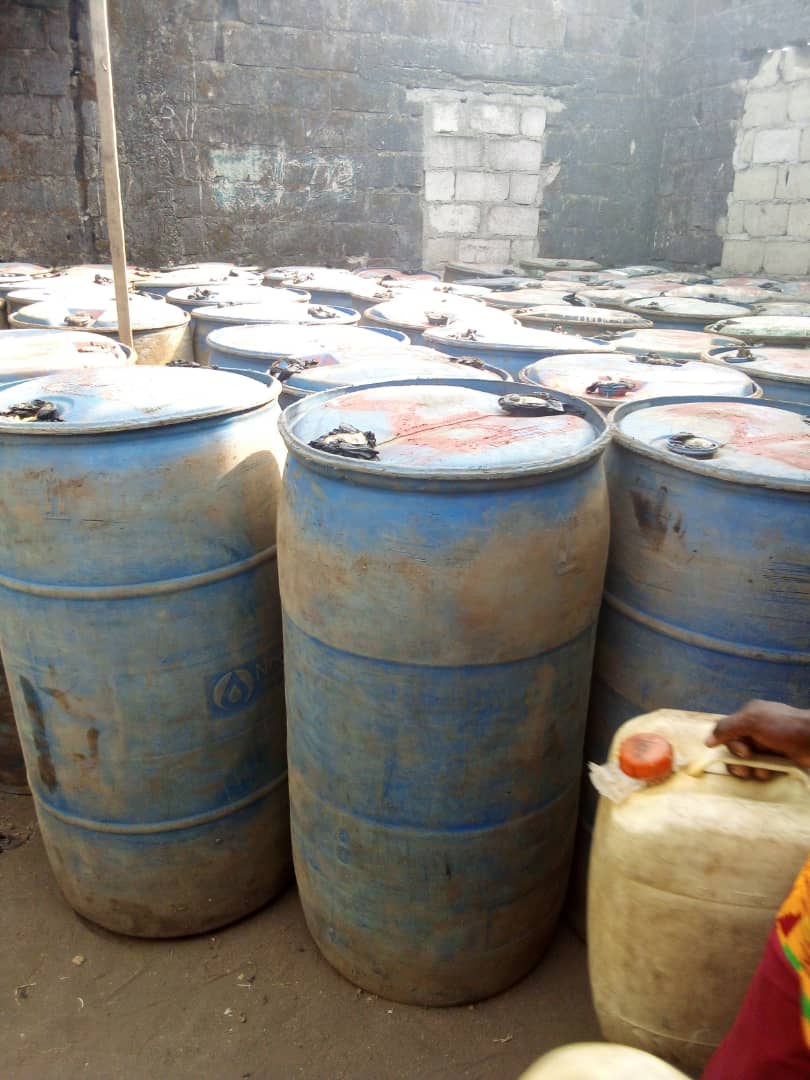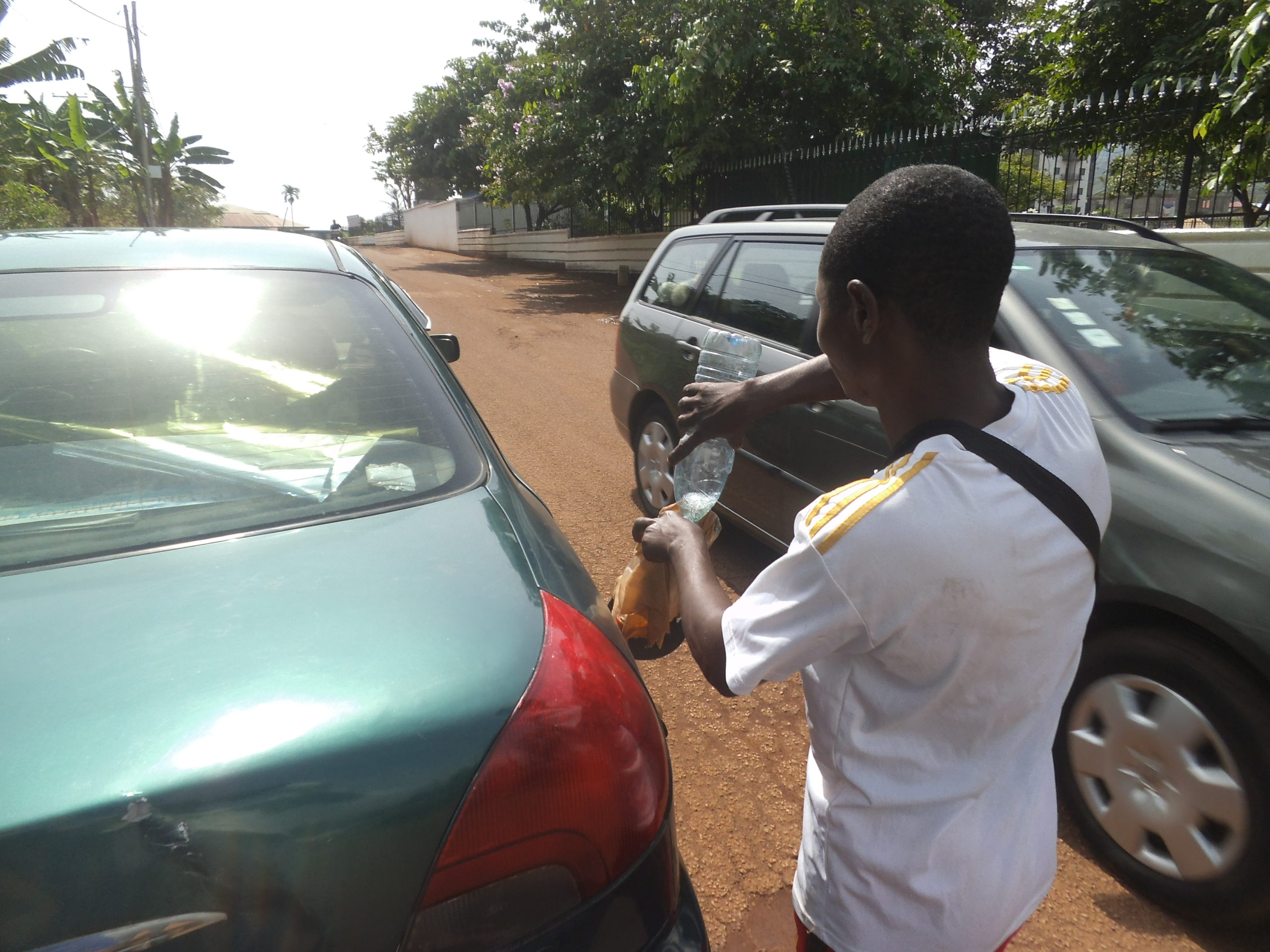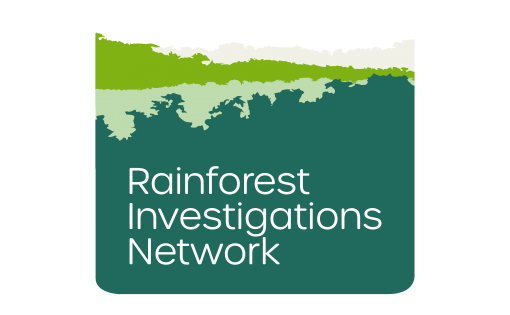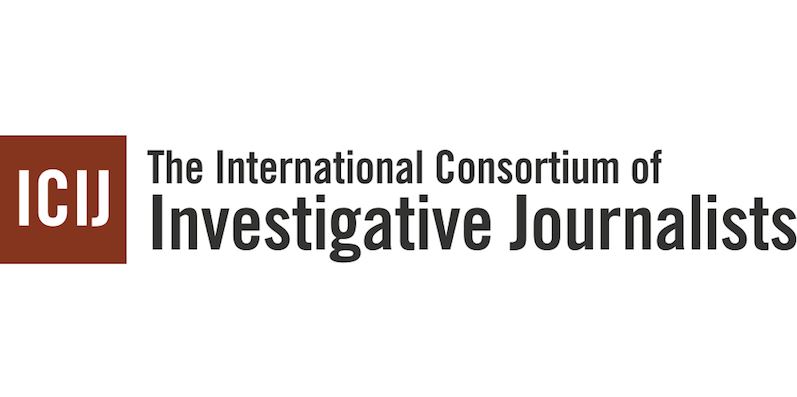At about mid-day on October 14, 2021, a huge depot at the basement of a private residence located in Botaland, where illegally imported petroleum products from neighbouring Nigeria had been stored, suddenly went up in flames.
It could not immediately be established what led to the fire accident. But it was clear that the fuel, worth millions, was kept in plastic drums of about 200 liters each.
As time goes by, illegal fuel is gradually transforming the urban décor in Cameroon’s major cities. Vendors improvise unauthorized sales points along the streets. When night falls, they store the unsold inflammable products in warehouses, houses or makeshift hiding places on the roadsides, endangering their own lives and those of their entourage.

In the early 1990s, this fuel from neighbouring countries was already banned from sale, particularly because it reduced the market share of petrol stations owned mainly by multinational oil companies. Hounded from all sides by the forces of law and order, the sellers had, after several months of resistance, finally given up the activity.
But in recent years, they have resumed their activity with the discreet support of some state agents who are supposed to prohibit this illegal trade.
For months, three Cameroonian journalists working with The Museba Project, an online newspaper, have been investigating the supply channels of this fuel and how hundreds of millions of CFA francs end up in the pockets of certain officials while this business threatens the environment, the health of the population and the national economy.
These reporters gathered that as the owner of the depot at Botaland, Limbe, popularly known as Kouper, noticed the fire, he immediately alerted some persons close-by who swung into action in order to try and contain the fire. But they only succeeded in rescuing a few of the containers to a safe area. The sheer intensity of the flames did not allow them to do much. Without a fire extinguishing machine to assist them, most of the stock went up in flames.
when the bad news got to them, Public officials in Fako Division, led by the Senior Divisional Officer, Emmanuel Engamba Ledoux, quickly moved to the scene of the incident .
On their orders, a fire fighting van from the Fire Fighting Brigade of the National Oil Refinery, SONARA, was called in to help put out the fire. The house, under whose basement the fuel had been stocked, was almost completely damaged. The fire also touched some of the neighboring buildings.
The above incident did draw the attention of the public who witnessed, fully, how the illegal trade in imported petroleum products into Cameroon has been allowed to go on to the point where individuals run huge depots.
How the Business Thrives
The same administrative and security officials who rushed to the scene on that October 14th to see what had happened were no strangers to the thriving business of illegal petroleum products in Cameroon. They knew that Botaland is known as one of the landing points, if not the headquarters, for the importation and sale of this illegal fuel in Limbe.
The law in Cameroon forbids the illegal importation and sale of petroleum products. In essence, the law guiding Customs operations classifies illicit fuel imports as contraband goods. Thus, any person dealing in their importation, either from Nigeria or any other country is considered to be contravening the law. This is because those in the business, as we found out, don’t have licenses and do not pay taxes to the state treasury. Therefore by law, they stand to be arrested and dragged to the law courts for adjudication.
However, since the Botaland incident happened, from our findings, again, no person was either arrested or dragged to court as a result of what happened. Secondly, there was no security raid either to prohibit others from carrying on with the importation and storage of this illegal fuel nor was there any effort to stop the business in Limbe and elsewhere in the country.
While fuel from the licensed petroleum dealers across the country is sold at recognized filling stations, this illegally imported fuel is sold along the streets in small plastic bottles from one liter and upwards. The vendors, sometimes, only display a bottle by the road that has been filled with water or one mixed with the fuel as a sign.
The roadside vendors of this illegally imported fuel depend on the big importers for their supplies. And since the Botaland incident, there has been no report of any of them having been chased from the street corners where they are found in Limbe and elsewhere. The business is still booming just as it has ever been.
The trade is organized in such a way that there are major importers who import in bulk and often from Nigeria. They import using plastic containers of 200 liters each. The major hubs in Fako Division where this fuel comes in are Idenau, in the West Coast Sub Division. In Limbe, reporters discovered that the entry points are Limbola village, Botaland, Wovia and the Down beach seafront. All the hubs are located along the Limbe coastline.
The importers have hidden depots located within the residential communities in the above named locations. We gathered from our sources that these depots are well known to the security. It is from these depots that the roadside vendors and other dealers from other towns or regions of the country come and buy from.
Thus, the fire incident of October 14, 2021, touched just one of such depots being used to store the smuggled fuel products. A security officer, who works with the State Security apparatus in charge of investigations known as the General Directorate in Charge of External Research, DGRE, told us on December 14, 2021, that there are about 30 of these privately owned illegal petroleum depots in Limbe; that is, Down Beach, Botaland, Wovia, Ngeme and Limbola. Some of them are run by Nigerian nationals who have a direct connection with dealers or smugglers back in Nigeria.
From our investigation, in the course of 2021, a 200 liter container or drum is sold at FCFA 85,000 at the level of Idenau; FCFA 90,000 at the level of Limbola and FCFA 95,000 at the level of Botaland, Wovia, Ngeme and Down Beach.
But these prices tend to fluctuate depending on the rate of exchange of the Naira in Nigeria or when the Cameroon security or customs officials at sea or land decide to be hard on the big importers. From January to February, 2022, when Cameroon was hosting the African Cup of Nations, the Government, for apparent security reasons, decided to implement a naval blockade at sea. Consequently, the price for a 200 liter container, according to Mih Mbeng, a vendor in Limbe, went up to FCFA 110,000.
Bribes for the profiteers
In the course of 2021, we found out that those within the Administrative set up in Fako Division, the security forces from the top to the bottom, were directly or indirectly behind the booming trade.
The big importers and roadside vendors are those directly involved in the business of buying and selling to the end users. But the administrators, security officials, are the ones fuelling the existence of the business by way of collecting bribes and allowing the illegal business to keep thriving as if nothing was happening. The administrators who are supposed to clamp down on the trade are instead busy lining their private pockets while the Government is losing billions. Some of them, even unapologetically, buy from vendors who sell this cheap fuel along the streets.
In the Month of March, reporters interviewed over ten roadside vendors across Limbe and gathered that the business is so organized in such a way that all the roadside vendors have a makeshift union. That is, all those who buy from the above-mentioned depots and sell by the street corners in liters or smaller quantities. Each week, these vendors disclose that « each vendor has to contribute FCFA 1,500 to the union. »
There is a team of some four or five vendors who go round, every Wednesday and Thursday, each week, and collect the FCFA 1,500 contributions from the roadside vendors. When we met with one of the team members who spoke on condition of anonymity, he nonetheless said there are about 150 to 200 of these roadside vendors on the average. This gives a rough estimate of about FCFA 300,000 that is collected every week from the small time vendors by the roadsides. In a month, at least, these vendors turn in not less than an FCFA 1 million to the security heads managing the City of Limbe.
According to this vendor, the money is shared out to the heads of the gendarmerie company, the police, and other officers in the network. At this time, the Limbe Police Command was manned by Commissioner Nyebe Jean while the Limbe Gendarmerie Company by Captain Heffat Michel. But the vendor said it doesn’t matter who heads these security services at any one time. It is a network and whether there is a change at the helms of these services, they have to collect and hand the money.
Meantime, the big importers, like the ones at Down Beach, as we gathered also have their own makeshift union. This union also makes a similar collection from all their members who deal with importation from Nigeria. Their own quota, we learned, tends to be higher. One source told us that when they collect, they target the top administrators of the Division and even that of the region.
« Sometimes, they even send some of the money collected to some undisclosed persons in the Administration in Yaoundé », our source said.
« The envelope to Yaoundé is usually something like FCFA 10 million. When it is for the Administrators in Fako, they envelope is about FCFA 5 million« , this source added.
It is worthy to note that these are the security services in charge of keeping a check on the illegal importation and sale of this contraband fuel in Limbe and elsewhere. It, invariably, can be deduced that the illegal financial collections being made weekly by the security and top Administrative officials is reason enough to conclude why for the whole of 2021, there was no real security raid in the City of Limbe to either stop the sale of this roadside fuel or send a signal that what they dealers are doing is against the law. There was only one reported isolated case where the Gendarmerie Company in Limbe and the Ministry of Environment publicly displayed one catch of this illegally imported fuel.
The other case was in December, 2021, where there was a general raid against roadside vendors in the Limbe II Sub Division that was host to one of the Stadiums in Cameroon where the Africa Nations Cup, 2021, AFCON, matches were played. Some few containers of fuel were seized. But since the December raid, nothing has happened again. The selling of this fuel along the streets has continued just as it was before the raid.
This trade is not limited to Limbe. It extends its tentacles into the surrounding towns and other regions, especially Douala. The arteries of the economic metropolis of Cameroon are flooded with illegal fuel, which is highly prized by commercial motorcycle riders. This is because it commands a lower price than the ones charged at the filling stations. The prices vary according to the neighborhoods concerned. In the suburb of Bonabéri which is the main entry point for products from Limbe, for instance, a liter costs FCFA 500; a little further into the city, a liter there is sold at CFA 550 while in the neighborhoods farther from the road, a liter is sold at FCFA 600. All these prices are still cheaper as compared to FCFA 630 per liter of Super in the filling stations.
After every 100 meters, one is certain to find the yellowish liquid displayed on makeshift counters along the street. The young and old, men and women, are all engaged in this activity every day and night. They carry out their activities peacefully under the nose and eyes of the authorities.
« The first rule in this business, if you want to do it peacefully, is that you have to collaborate with the law enforcement and security forces. When they arrive, give them the money. You will never be worried, a vendor in Douala explained. Adding that » if you get tough, they’ll bother you every day. And you’ll be the one to loose. Because when you don’t pay, they confiscate your goods. When the goods are already in their vehicles, you will have to pay hundreds of thousands to get them back ».
Every day, these vendors in Douala receive about eight to eleven controls, said another vendor who requested for anonymity.
« It depends on the day. We can have eight controls, nine controls, ten controls, eleven controls. Almost all the units of the forces of law and order pass by. They are the national gendarmerie, the GMI (Groupement mobile d’intervention – a unit of the national police), the ESIR (Equipes spéciales d’intervention rapide, another unit of the national police) and the elements of the judicial police. Thus, we spend 8,000 to 11,000 CFA francs per day, » he says.
Unlike in Limbe, there is no corporation or union in Douala. It is therefore difficult to put forward a comprehensive figure as to the number of vendors who occupy the sidewalks. However, there are thousands of them in the city of 410 km2 and with nearly 4 million inhabitants, the ranks grow every day. After the motorcycle cab business, the fuel trade is the drop-off point for young people who are looking for work.
In other towns in Cameroon, there were reported raids by the security. For instance, on Wednesday August 25, 2021, The Guardian Post Newspaper, in its edition Number 02225, reported a story captioned: « Over 3000 liters of illicit fuel seized in Dibombari. »
In yet another publication on October 29, 2021, edition Number 02281, it reported about the seizure of another huge quantity of fuel, yet in the Littoral region captioned, « Over 7000 liters of illicit fuel impounded in Douala. »

Cameroon Is, Indeed, Losing Billions!
The General Manager, GM, of the Cameroon Petroleum Depot Company, SCDP, Veronique Moampea Mbio, is reported to have said that the smuggling of fuel is costing the state coffers 32 billion FCFA yearly.
The Southwest Regional Delegate of the Ministry of Water and Energy which has been making efforts to fight against the illegal importation of illicit fuel into the country, said Cameroon was, indeed, losing much.
The Delegate, Atabongfack Maurice, disclosed that at the level of his office, he has been struggling to carry on with the fight against this illegal importation at the level of the high seas within the Southwest coastline.
From his statistics of 2020 and 2021, his office in 2020, alone, turned in the sum of FCFA 52,485,500 from the sales of illegal fuel that they seized at the high seas from importers. He said this was money generated from the sale of a total of 149,852 liters of illicit fuel that was seized by his Ministry in 2020 from illegal importers.
He disclosed that his Delegation, as from January 2021 to September, 2021, had already seized, sold and paid into the Government coffers the sum of FCFA 44 million.
When asked why is it that, despite efforts made by his Ministry in all these operations, the presence of illicit fuel along the streets of Limbe and other bends in the quarters was still a common phenomenon, he disclosed that, his ministry was not getting full support in the fight « from the security services that are supposed to champion the fight. »
He stated that they often get assistance from the Naval Base Commander but very little from the police and Gendarmerie services.
The Customs Department has a duty to check this importation of illegal fuel which is classified among the contraband goods which they are supposed to fight against. The Customs service in the Southwest with Head office in Limbe has a brigade that works with the Military to fight against this illegal importation. Along the major highway from Idenau through Limbe and out of Limbe to Douala, the Customs have over four posts where their elements have been stationed with a mission to check against the smuggling and transportation of all illegally imported or contraband goods. But the vendors reporters interviewed disclosed that the customs are not left out of the corruption racket.
« At each customs check point, if you are caught with a drum of illegally imported fuel, you are obliged to settle with the sum of FCFA 2000 per drum. At the level of Down Beach, Ngeme, Wovia or Limbola where the importers come in with the drums, at least each boat that lands with fuel has an undisclosed amount that it pays as bribe to the customs officers. And here, too, the other security heads also come in, once they have been hinted by their informants of any fuel arrival, and collect their own envelope, » Mih Mbeng, a vendor said.
The vendors revealed that the usual amount vendors pay to these officials always vary per quantity of fuel involved.
Administrative Tolerance or Complicity?
One may wonder why the Senior Divisional officers of the Region or the Governor cannot order for a swoop on these illegal importers.
While Cameroon was preparing to host the African Nations Cup in January 2022 with Limbe being one of the host cities, the Southwest Governor, Bernard OkaliaBilai, during the launch of the ‘Keep Fako Clean,’ campaign, late in November, 2021, called on the local administrators to ensure that all roadside vendors of illegal fuel should be dislodged. Two weeks after his campaign launch, not even one had been removed.
It is difficult, therefore, to conclude that it is just mere tolerance from the part of the Government Administrators.
The security officer at the level of the DGRE told us crystal clear that « everything in Cameroon is about money. Once you have the money to bribe your way, no case goes anywhere. »
And if it is by tolerance, then, it is tolerance at the expense of the very Government that they are serving and are expected to implement Government’s laws and policies for it to succeed in raising the revenue that it has to run the country with.
At the Limbe Police Station, the Assistant Police Commissioner, Attah Roy, had the same response. « We can only go out for checks at the SDO’s order » he said. The security control against those selling illegal fuel along the streets that was carried out before the AFCON tournament was just an isolated case, after more than a year that Limbe had not witnessed such a control.
These controls have not been going on for the past one year or more, as well as comment on the supposed regular sums which the roadside vendors say they contribute weekly and hand to the security services in order to pre-empt them from coming out to chase them off the streets.
Before the kickoff of the AFCON football tournament on January 6, following instructions that had been dished out by the Southwest Governor, a contingent of security officers went out on a rear control and chased away all the roadside vendors; at least, from open view.
After the AFCON tournament, very few of the vendors were displaying their sales plaques or empty bottles by the roadsides they openly did before. But the business is still on. The vendors have just simply changed their strategy from openly displaying their bottles by the roadsides to hiding them. While the bottles or their containers remain in hiding, they keep a permanent presence where they have been selling since most of their customers already know their sales positions.

We talked to a retired police officer, Joseph Nyenti, who said in their days in the police service, bribery was not as rampant as it is today. Asked why he thinks the sale of illegal fuel is still very prominent in Limbe despite the presence of the police and other security services, he said that the police sometimes collect money from the vendors not because it was their intention to do so. « They collect simply because they want to defend themselves in order to have something for the family. »
He further reiterated the fact that the police service today does not function the way it was during their time. He retired before 2010. He said that at the time when the Government decreed an increment in their salaries, they were sure to receive the increment in the following month.
« But today, when the Government announces a salary increment, it takes long before the increment is effected on your pay slip. You will have to compile documents and go to Yaoundé, sometimes, on several occasions, before you might succeed. Thus this is encouraging the aspect of corruption in the service today, » he said.
The Quality As a Concern
The quality of these illegally imported fuels, as most automobile users have testified, is not guaranteed. Many say those who use the fuel run the risk of damaging their engines either in the short or long run. We tried to get an expert from the National Oil Refinery to react to this but we did not succeed owing to some procedural requirements.
But notwithstanding the doubtful quality, a significant number of automobile users, especially the commercial motor bike and cab riders make use of the fuel without recourse to the fact that it has a potentially damaging effect. They argue that the cost of the illegally imported fuel is far cheaper than fuel sold at petrol filling stations, which is said to be of very good quality.
At the feeling stations, a liter of petrol, the ’Super’ type, is sold at FCFA 630 while a liter of gas oil for diesel engine cars is sold at FCFA 575.
Meantime a liter of petrol or the equivalent of Super, by the roadside, is sold at FCFA 400 in Limbe. Elsewhere or in other towns, the price may witness a slight increase like in Douala. A liter of gasoil by the roadside, we gathered, sells at the same FCFA 400.
The prices, nonetheless, do sometimes fluctuate. But, according to those who buy it, the fuel bought by the street corners is comparatively cheaper; thus, the reason why they go for it.
Health and Environmental Risks
Some of the fuel stored in households due to its strong smell, comes to add to other factors that cause indoor air pollution. According to a recent study on the effects of Air pollution on human health conducted by Clean Air Africa in collaboration with the Faculty of Medicine and Pharmaceutical Sciences of the University of Douala, Cameroonian households stand a chance of getting stroke, heart diseases, lung cancer, and chronic respiratory diseases as a result of air pollution.
Researcher, Professor Bertrand Mbatchou says air pollution in general kills an estimated seven million people worldwide every year. While transporting this fuel to depots, some of it pours on the soil which affects the production of crops in the area, Professor Mbatchou explained.
Despite regular updates on customs or other administrative authorities’ crackdown on illicit petroleum, there’s still a lot to be done especially at the borders, in order to stop the influx of illegal fuel which is playing down on the country’s economy.
By Francis Tim Mbom, Kiven Brenda and Patrick Bihel
This story has been done with the support of MUSEBA Journalism project





